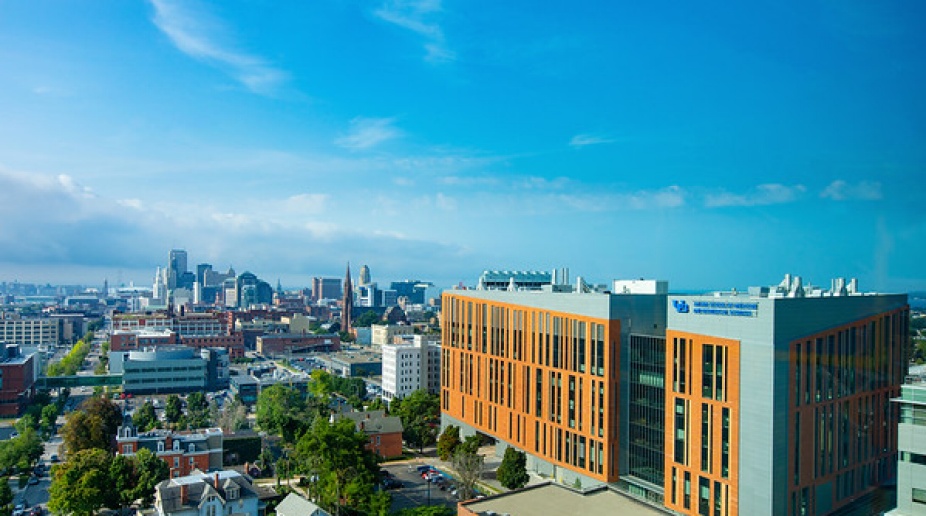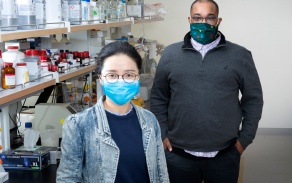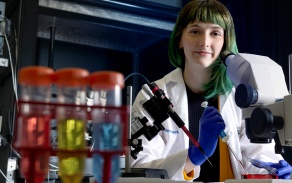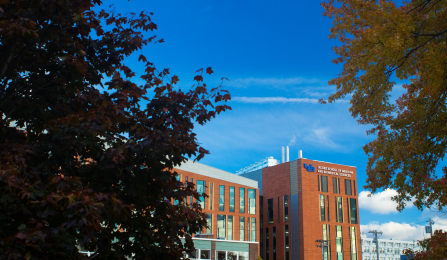With 17 areas of research, we’re sure you’ll discover your next home with us.

Opportunity Starts Here.
The PPBS Difference
Innovative interdisciplinary curriculum, student-focused mentoring and professional development, and cutting-edge research facilities — these are just a few of the PPBS attributes that ensure our students are prepared to be leaders and agents of change in the many career paths that biomedicine has to offer.

See how our interdisciplinary approach can prepare you for the future of science and medicine.

Our well-structured interdisciplinary curriculum gives you the opportunity to participate in a spectrum of state-of-the-art research with accomplished UB faculty.

Graduate students benefit from a training structure where answers to scientific questions are provided by faculty from a variety of disciplines and scientific fields.
The PhD Program in Biomedical Sciences (PPBS) allows you to experience different fields of research and laboratories before selecting a specialty area.
This fully-funded program provides an entry portal and a common first-year curriculum, equipping you with core knowledge and concepts to support your pursuit of a doctoral degree in one of our several participating disciplines.
Program options
- Biochemistry
- Biomedical Engineering
- Biomedical Informatics
- Genetics, Genomics and Bioinformatics
- Microbiology and Immunology
- Neuroscience
- Oral Biology
- Pathology and Anatomical Sciences
- Pharmacology and Toxicology
- Physiology and Biophysics
- Structural Biology
Want to Apply Directly?
If you have a strong background or interest in one of these programs, you can apply directly through the department.
All programs except Medical Physics also participate in the PPBS. If you want to explore different disciplines (including these options) before selecting one for your doctoral research, apply through the PPBS.
Program options
*Not available through PPBS



























